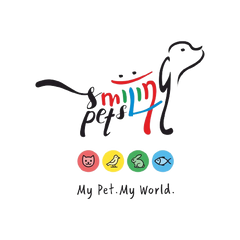Senior Dog Food: When to Switch and How to Choose the Right Option
As dogs grow older, their nutritional needs change to support their evolving health and well-being. Senior dog food is specifically designed to cater to the requirements of aging dogs, helping them stay active, maintain a healthy weight, and manage age-related health challenges. Understanding when and how to transition to a senior-specific diet can ensure your furry friend enjoys a happy and healthy senior life.
Recognizing the Senior Stage in Dogs

How Age and Size Affect Senior Classification
The age at which a dog is considered a senior varies by breed and size. Smaller breeds such as Poodles or Shih Tzus often have longer lifespans and typically enter their senior years around 9 or 10 years old. Medium-sized breeds, like Cocker Spaniels or Australian Shepherds, may reach this stage between 7 and 9 years of age. Larger breeds, including Great Danes or Rottweilers, may need senior dog food as early as 6 years old due to their shorter lifespans.
Behavioral and Physical Indicators of Aging
Beyond age, there are physical and behavioral signs that your dog might be transitioning to their senior years. Reduced activity levels, stiffness in joints, slower digestion, or changes in weight can all indicate it’s time to consider a specialized diet. Monitoring these changes ensures you can make timely adjustments to their nutrition.
Why Senior Dogs Have Unique Nutritional Needs
Reduced Activity Levels and Caloric Needs
As dogs age, their energy levels naturally decline, leading to reduced calorie requirements. A senior-specific diet typically has fewer calories while maintaining high-quality nutrients to prevent unnecessary weight gain.
Joint Health and Mobility Concerns
Joint issues like arthritis are common in older dogs. Senior dog foods often include ingredients such as glucosamine and chondroitin, which support cartilage health and improve mobility, helping to alleviate discomfort during movement.
Digestive System Sensitivities
Older dogs may develop sensitive stomachs or struggle to digest certain foods. Senior formulas are often enriched with fiber and probiotics, promoting better gut health and easier digestion.
Immune System Support
With age, a dog’s immune system may weaken, making them more susceptible to illnesses. Senior dog foods are fortified with antioxidants like vitamin E and beta-carotene, which bolster immunity and support overall health.
Benefits of Switching to Senior Dog Food

Balanced Nutrition for Aging Dogs
Senior dog food is tailored to meet the specific nutritional requirements of older dogs. It balances protein for muscle maintenance with lower fat content to manage weight effectively.
Improved Mobility and Joint Health
Specialized diets for senior dogs often include omega-3 fatty acids and other anti-inflammatory nutrients that enhance joint health and reduce stiffness, enabling your dog to stay active.
Enhanced Digestibility
The addition of prebiotics and probiotics in senior dog food supports digestive health, ensuring older dogs can absorb essential nutrients more effectively.
Tailored Textures for Easier Chewing
Many senior dogs face dental challenges, such as missing teeth or gum sensitivity. Senior dog food options, including softer kibble and wet food, provide textures that are easier for them to chew and swallow comfortably.
Signs It’s Time to Transition to Senior Dog FoodChanges in Weight
Weight fluctuations, whether gain or loss, are common in aging dogs. A senior-specific diet helps maintain an ideal weight by offering the right balance of nutrients and calories.
Reduced Mobility or Stiffness
If your dog shows signs of joint discomfort, such as hesitance to climb stairs or play, their diet may need adjustments to include joint-supporting ingredients.
Decline in Energy Levels
Lower energy levels and a preference for rest over play are natural as dogs age. Senior dog food is formulated to match their reduced energy expenditure without compromising on essential nutrition.
Digestive Issues or Sensitivities
Frequent upset stomachs, changes in stool consistency, or difficulty digesting certain foods can indicate the need for a senior diet designed for sensitive stomachs.
How to Choose the Best Senior Dog Food
Look for High-Quality Ingredients
Opt for senior dog food with high-quality protein sources, whole grains, and essential fatty acids. Avoid artificial preservatives, fillers, or by-products that may compromise your dog’s health.
Focus on Joint and Bone Health
Choose formulas that contain glucosamine, chondroitin, and calcium to support joint health and bone density, reducing the risk of arthritis and fractures.
Consider Digestibility
Select foods enriched with fiber and probiotics to support your dog’s digestive health. These ingredients ensure better nutrient absorption and prevent gastrointestinal discomfort.
Tailor to Your Dog’s Specific Needs
Every senior dog is unique. Consider your dog’s size, breed, and any existing health conditions when choosing a diet. For example, dogs with kidney issues may require reduced phosphorus levels, while those with heart problems might benefit from lower sodium content.
How to Transition to Senior Dog Food
Make Gradual Changes
Switching to a new diet should be done gradually to avoid upsetting your dog’s digestive system. Mix a small portion of the new senior formula with their current food, gradually increasing the ratio of the new food over 7–10 days.
Monitor Their Response
Observe your dog’s behavior, stool quality, and overall energy levels during the transition. If they show any adverse reactions, consult your veterinarian for guidance.
Consulting Your Veterinarian for Dietary Advice
Your veterinarian is an invaluable resource when it comes to selecting the right senior dog food. They can provide personalized recommendations based on your dog’s specific health needs, ensuring their diet supports any existing medical conditions or health goals.
Switching to senior dog food is a crucial step in caring for your aging pet. By recognizing the signs of aging and selecting a diet tailored to their evolving needs, you can help your dog maintain a healthy weight, stay active, and enjoy their golden years with vitality. Always consult your veterinarian for guidance, and remember that good nutrition is the foundation of your dog’s well-being at every stage of life.




